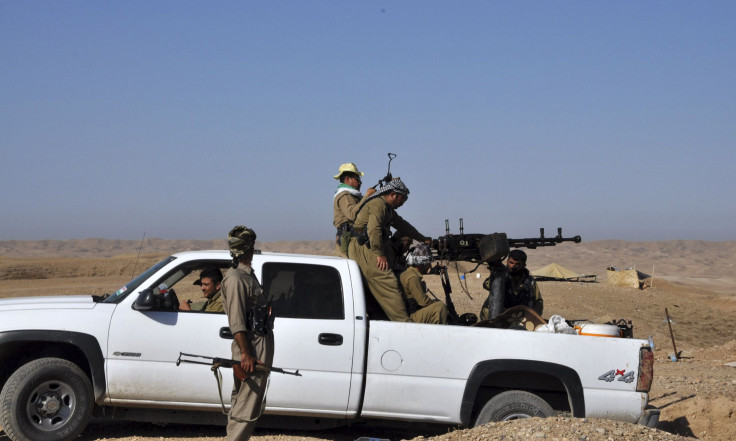Seized ISIS Laptop In Syria Contains Plans For 'Bubonic Plague' Weapons

A laptop allegedly seized from an ISIS (also known as Islamic State) base in Syria contains plans to launch devastating terror attacks harnessing the bubonic plague.
Discovered by a moderate rebel group from an IS base in Idlib, northern Syria, in January, the computer belonged to a Tunisian militant and also contains instructions on how to build explosives, use disguises to travel undetected, and plans to build chemical weapons.
"The advantage of biological weapons is that they do not cost a lot of money, while the human casualties can be huge," a document retrieved from the computer stated.
The Dell laptop was shown to journalists working with Foreign Policy magazine.
They report that the computer initially seemed to be blank, but on closer investigation contained a trove of hidden files.
Information retrieved indicated that the computer had belonged to a Tunisian called "Muhammed S.", who had joined IS in Syria.
The magazine does not diclose the full name of the rebel.
Further documents showed that the owner studied physics and chemistry in two universities in the northeast of Tunisia, and planned to put his knowledge to deadly effect.
A 19-page document outlines plans to weaponise the bubonic plague from infected animals. It describes how to safely test diseases to be used in terror attacks.
"When the microbe is injected in small mice, the symptoms of the disease should start to appear within 24 hours," the document explains.
It also contains a 26-page fatwa, or Islamic ruling, proclaiming the use of chemical weapons to be acceptable against kafirs, or non-believers.
"If Muslims cannot defeat the kafir in a different way, it is permissible to use weapons of mass destruction," states the fatwa by Saudi jihadist cleric Nasir al-Fahd, who was jailed in Saudi Arabia in 2003. "Even if it kills all of them and wipes them and their descendants off the face of the Earth."
One of the Tunisian universities named in the documents confirmed to FP that the author had been a student there.
In June, the Tunisian foreign minister said that there was an estimated 2,400 Tunisians fighting in the Syrian civil war, mostly for IS.
Though attempts by al Qaeda to acquire chemical weapons in the past came to nothing, IS militants have seized swathes of territory in Syria and Iraq, including Mosul's university, where it is feared they could be developing deadly new weapons.
In July, IS reportedly used chemical weapons on the battlefield against Kurdish fighters in clashes in a semi-autonamous Kurdish region in Syria.
The region's health minister, Dr Na'san Ahmed, told of "strange white injuries" on the bodies of some fighters, and called on international medical institutions and human rights organisations to investigate the incident.
In July, IS militants seized a factory northeast of Baghdad used by Saddam Hussein's regime to make chemical weapons. However, experts said that no weapons remained at the site.
"Use small grenades with the virus [sic -- although the bubonic plague is spread by bacteria, not viruses], and throw them in closed areas like metros, soccer stadiums, or entertainment centers," the 19-page document on biological weapons advises. "Best to do it next to the air-conditioning. It also can be used during suicide operations."





















